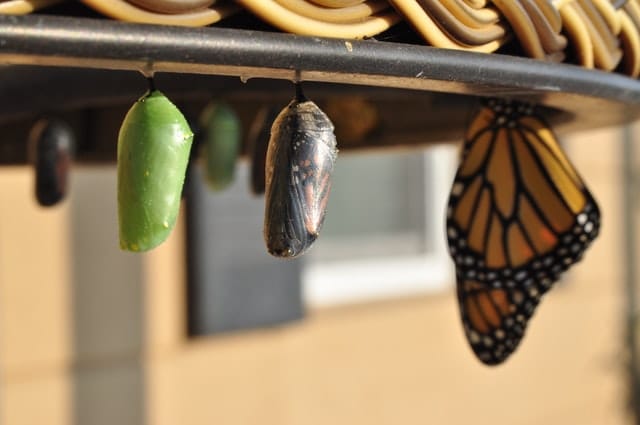
Sarah Vincent investigates why it’s important to know what level your writing career is at.
Why does everyone want to know what stage you’re at as a writer? Does it matter? Some days I’m at “Wohoo!” some days it’s “Who am I kidding?” and some days it’s “Throwing my computer out the window, why didn’t I become a nurse like my sister cause she gets double time on Sundays.”
Sadly, none of these categories were available last time I checked the Australia Council website and that’s where it does matter. Funding bodies have different pools of money to allocate to different levels of experience and “I need a new computer before my husband gets home” isn’t one of them.
The three most-used categories by funding bodies to describe artists are early (just starting), emerging (some professional experience and some recognition by your peers) or established (lots of experience and recognition).
For writers these three categories correlate to how much you’ve published. Early equals not much, emerging equals pieces in peer-reviewed journals and anthologies, and established means at least one full-length fiction or non-fiction book by a mainstream publisher. The lines between early and emerging can be blurry though. Winning writing awards, or being long or short-listed for them, helps move you from early to emerging, as does publishing online. But the established category steadfastly refers to full-length publication.
As funding for the arts tightens some emerging funding categories are now requiring one full-length book publication or play commission. This isn’t across the board yet so it’s best to always check a funding body’s specific guidelines and categories before applying.
Another area your category is important is in writing competitions. One sure way to annoy judges of emerging writers’ competitions is to confess, after winning, that you’ve had a book published and are not an emerging writer.
And it’s not just funders and judges who are interested in your level. It’s also important when enrolling in workshops. If you’re an emerging writer it’s no fun being at a workshop where some participants are asking basic questions that everyone else was asking at the start of their writing journey. Nor is it fun if you’re an early stage writer and you accidentally end up in a poetry masterclass where the facilitator assumes all participants have years of experience perfecting thirty-nine-line sestinas.
This doesn’t mean you can’t ever enrol in a workshop that you think is pitched above your level of experience. This is where homework helps – googling the genre, reading the tutor’s books and engaging with the topic on Twitter in the lead up will help you be as well-prepared as possible.
So am I early, emerging or established? The answer is the same for when my son asks if he can have a bullwhip for Christmas – it depends. With two professional productions and one paid commission by an established theatre company I am an established playwright. As a completely unpublished children’s writer who came 24th in the CYA Picture Book Awards – I am early. (There were 240 entries, so I was actually pretty happy with 24th.) As a fiction and non-fiction writer with pieces in journals and anthologies, but no full-length book published yet, I am emerging.
Will I ever be an established fiction writer? I hope so. And will my son get his bullwhip? That depends on whether I want to spend Christmas Day at my sister’s emergency department.
|
Stage | Experience |
|
Early | Just starting out. Haven’t done much writing or attended many workshops. Haven’t read many books on writing. Haven’t studied writing at a university or TAFE. |
|
Emerging | Have done a fair amount of writing, have read some books on writing, have attended workshops before and might be currently studying or might have studied writing at a university or TAFE. Most likely would have had some short pieces published or been listed for some awards. |
|
Established | Have had a full length book of fiction or non-fiction published by a mainstream publisher, are familiar with the topic being taught and are ready to delve deeper into the topic in an advanced way. |
